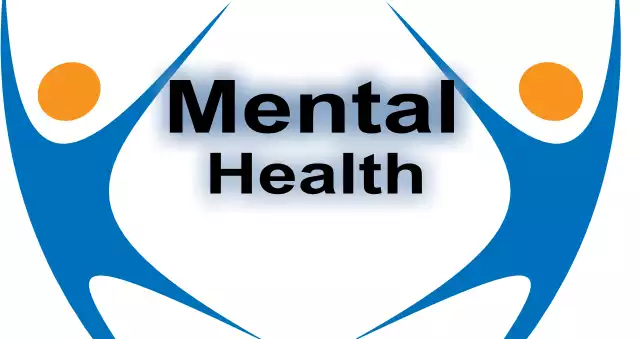End Struggle with Suicidal Thoughts
If you are experiencing suicidal thoughts, know that you are not alone.
It is estimated that about 800,000 people die by suicide every year, and even more struggle with these thoughts.
It’s important to understand that seeking help is not a sign of weakness, but a brave and necessary step towards healing.
There are numerous resources available to support and guide you through this difficult time.
In this article, we will discuss some of the most helpful resources for those struggling with suicidal thoughts.
Whether you are personally dealing with these thoughts or know someone who is, it’s crucial to be informed about the available options for getting help.
From hotlines and online support groups to therapy and medication, there is a wealth of resources that can provide you with the support and guidance you need.
Remember, your life is valuable and there is always hope for a better tomorrow.
Let’s explore some of the resources that can help you on your journey towards healing and recovery.
Table of Contents End Struggle with Suicidal Thoughts
Reach out to a therapist.
It can be incredibly beneficial to reach out to a licensed therapist when you are struggling with suicidal thoughts.
Therapists are trained professionals who specialize in providing support and guidance for individuals experiencing mental health challenges.
By seeking therapy, you can have a safe and confidential space to explore your emotions, thoughts, and concerns.
A therapist can help you develop coping strategies, identify triggers, and work towards finding healthier ways to navigate through difficult times.
They can also provide valuable insights and perspectives, offering a fresh and objective viewpoint on your situation.
Remember, reaching out to a therapist is a courageous step towards prioritizing your mental well-being and seeking the help you deserve.
Talk to a trusted friend.
Another valuable resource when struggling with suicidal thoughts is talking to a trusted friend.
Opening up to someone you trust can provide a sense of relief and support during difficult times.
Your friend can offer a listening ear, empathy, and understanding, helping you feel less alone in your struggles.
They may also be able to offer practical assistance and help you connect with professional resources.
Sharing your feelings with a trusted friend can foster a sense of connection and strengthen your support network.
Remember, it is important to choose someone who is reliable, compassionate, and willing to provide non-judgmental support.
Call a suicide hotline.
When you are in crisis and need immediate support, calling a suicide hotline can be a crucial lifeline.
These helplines are staffed by trained professionals who are available 24/7 to provide confidential and compassionate support.
They are experienced in helping individuals navigate through their darkest moments, offering guidance, empathy, and resources.
By reaching out to a suicide hotline, you can talk to someone who understands and can offer non-judgmental support, helping you in times of distress.
Remember, you don’t have to face your struggles alone – there are people ready to listen and help you through difficult times.
Seek support from loved ones.
In times of crisis, it is important to seek support from your loved ones.
Share your struggles with trusted family members or friends who can provide a listening ear and emotional support.
Having open and honest conversations about your feelings can help alleviate some of the burden you may be carrying.
Your loved ones can offer comfort, reassurance, and a sense of belonging.
They can also help you in seeking professional help or connecting you with appropriate resources.
Remember, reaching out to your support network is not a sign of weakness, but a courageous step towards healing and finding strength in the bonds you share with those who care about you.
Find a support group.
Connecting with a support group can be a valuable resource for individuals struggling with suicidal thoughts.
These groups provide a safe and non-judgmental space for individuals to share their experiences, receive support, and gain valuable insights from others who may be going through similar challenges.
In a support group, you can find a sense of community and belonging, knowing that you are not alone in your struggles.
Trained facilitators or mental health professionals often lead these groups, ensuring a supportive and confidential environment.
They can offer guidance, coping strategies, and resources to help you navigate your journey towards healing.
Engaging with a support group can provide perspective, encouragement, and a sense of hope as you work towards finding solace and a path forward.
Utilize online resources.
In your journey towards finding help and support for suicidal thoughts, it is essential to utilize the vast array of online resources available to you.
The internet provides a wealth of information, support networks, and educational materials that can assist you in understanding and managing your thoughts and emotions.
Online forums and chatrooms specifically tailored for individuals struggling with suicidal thoughts offer a platform to connect with others who may be facing similar challenges.
These platforms provide a sense of anonymity and allow for open and honest discussions where you can share your experiences, seek advice, and gain different perspectives.
Additionally, numerous websites and apps offer evidence-based tools and resources, such as self-help guides, coping strategies, and crisis helplines, which can be accessed anytime and anywhere.
Remember to use reputable sources and be mindful of your own well-being when navigating online resources, seeking the support and guidance that will best serve you in your healing process.
Schedule regular check-ins with yourself.
As you navigate through your journey of seeking help and support for your struggles with suicidal thoughts, it is crucial to schedule regular check-ins with yourself.
Taking the time to reflect on your emotions, thoughts, and overall well-being can provide valuable insights and help you monitor any changes or triggers that may arise.
Set aside dedicated moments each day or week to engage in self-reflection and self-care activities.
This can involve journaling, meditation, or simply finding a quiet space to be alone with your thoughts.
By regularly checking in with yourself, you can become more attuned to your needs and make necessary adjustments to your coping strategies and support systems.
Remember, self-care is an ongoing and essential practice in maintaining your mental and emotional well-being.
Create a self-care plan.
To cultivate a robust self-care routine, it is beneficial to create a personalized self-care plan.
Start by identifying the activities and practices that bring you joy, calmness, and relaxation.
This can include engaging in hobbies you love, such as painting, reading, or exercising.
Additionally, prioritize activities that promote physical and emotional well-being, such as getting enough sleep, eating nutritious meals, and staying hydrated.
Consider incorporating mindfulness techniques, such as deep breathing exercises or guided meditation, into your daily routine to help reduce stress and promote mental clarity.
Remember, self-care is not a one-size-fits-all approach, so experiment with different activities and practices to discover what works best for you.
Finally, ensure that your self-care plan is realistic and manageable, setting aside dedicated time each day or week to prioritize your well-being.
By creating a self-care plan and committing to its implementation, you are taking a proactive step towards nurturing and supporting your mental health.
Seek professional counseling.
It is important to recognize that seeking professional counseling can be a valuable resource for individuals struggling with suicidal thoughts.
A trained therapist or counselor can provide a safe and non-judgmental space for you to express your feelings and thoughts, offering guidance and support throughout your journey towards healing.
They can help you explore the underlying causes of your suicidal thoughts, develop coping strategies, and provide valuable insights into your mental health.
Professional counseling can also provide a collaborative approach, working with you to develop a customized treatment plan tailored to your specific needs and goals.
Remember, reaching out for professional help is a courageous step towards prioritizing your well-being and finding the support you deserve.
Remember you are not alone.
It is essential to remember that you are not alone in your struggle with suicidal thoughts.
Many people have experienced similar feelings and emotions, and there are resources available to provide support and understanding.
Connecting with support groups or online communities can offer a sense of belonging and provide an outlet for sharing your experiences with others who can relate.
These communities can provide a safe space to express yourself, offer advice, and receive encouragement from individuals who have walked a similar path.
Remember, reaching out and connecting with others can help you feel supported and remind you that you are not alone in your journey towards healing and recovery.
Remember, seeking help is a sign of strength and courage.
You are not alone in this journey and there are resources available to support you.
Whether it is through therapy, hotlines, or support groups, know that there is always someone ready to listen and help.
Take a step towards healing and reach out for the support you need.
You are valued and loved, and there is always hope for a brighter tomorrow.
FAQ
What are some common resources available for individuals struggling with suicidal thoughts?
If you or someone you know is struggling with suicidal thoughts, there are several resources available to help.
Reach out to a helpline like the National Suicide Prevention Lifeline at 1-800-273-TALK (8255) to speak with a trained counselor who can provide support and guidance.
Online platforms like Crisis Text Line (text HOME to 741741) also offer confidential texting support.
Additionally, consider contacting a mental health professional, such as a therapist or psychiatrist, who can offer personalized treatment options.
Remember, you are not alone, and there are people who want to help you through this difficult time.
How can friends and family members support someone who is experiencing suicidal thoughts?
In this challenging situation, you can offer invaluable support to someone experiencing suicidal thoughts.
First and foremost, let them know you are there for them, listening and providing a safe space without judgment.
Encourage professional help, such as therapy or counseling, and offer to help them find resources.
Stay connected and check in on them regularly, showing that you genuinely care.
Engage in activities together that promote relaxation and self-care.
Educate yourself on suicide prevention to better understand their experiences.
Lastly, remind them of their worth and value, reinforcing their positive qualities and reminding them that they are not alone in their struggle.
Are there any online platforms or helplines specifically designed to provide support for those struggling with suicidal thoughts?
Yes, there are several online platforms and helplines specifically designed to provide support for those struggling with suicidal thoughts.
These platforms offer a safe and confidential space where you can talk about your feelings and receive guidance from trained professionals.
They understand the importance of listening without judgment and can help you explore coping strategies and resources to overcome your struggles.
Remember, you are not alone, and reaching out for help is a courageous step towards healing.
What are some signs that indicate someone may be at risk of suicide, and how can we encourage them to seek help?
If you notice someone exhibiting signs of depression, withdrawal from friends and activities, giving away possessions, or talking about feeling hopeless or trapped, they may be at risk of suicide.
To encourage them to seek help, let them know you care and are there for them.
Offer to go with them to a mental health professional or a helpline.
Avoid judgment or minimizing their feelings.
Encourage them to talk about their emotions and listen without interruption or criticism.
Remind them that seeking help is a sign of strength, and that there are resources available to support them through their struggles.
Are there any support groups or therapy options specifically tailored to individuals dealing with suicidal thoughts?
Yes, there are support groups and therapy options available specifically tailored to individuals dealing with suicidal thoughts.
These resources aim to provide a safe and understanding environment for you to express your feelings and receive the help and support you need.
Support groups allow you to connect with others who are going through similar experiences, while therapy provides professional guidance and strategies to cope with suicidal thoughts.
Remember, reaching out for help is a courageous step towards healing, and there are people ready to assist you on your journey to recovery.







